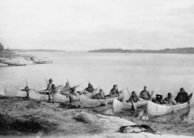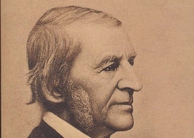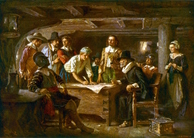|
2010 Volume 2 Issue 11
2010, Vol. 2 No. 11
The Phantom of the Opera was originally penned as a French serial by Gaston Leroux in 1909. It tells the story of a young man, Erik, who is born with a terrible deformity in his face. Erik is outcast by his parents, and eventually comes... Read Article »
2010, Vol. 2 No. 11
The term ‘nation’ is notoriously hard to define, not only because it has multiple meanings, but because the prevailing definitions change in response to various social and political factors (Ozkirimli 2000). In its most basic form a... Read Article »
2010, Vol. 2 No. 11
Gifted learners, although possessing higher levels of intelligence than their peers, are disadvantaged in the sense that they frequently do not, or are not given the opportunity, to reach their full potential (Farmer, 1993). Krause, Bochner and... Read Article »
2010, Vol. 2 No. 11
What began in New England in the early nineteenth-century as a reform of the Congregational Church grew into what some scholars consider to be one of the most monumental movements of religion, philosophy and literature in American history. Humbly... Read Article »
2010, Vol. 2 No. 11
When the Preacher wrote, “of making many books there is no end” [KJV Eccles. 12:12] he did not anticipate the mass of articles, scholarly papers and textbooks that would be written about Jesus’ address given to a group of disciples... Read Article »
2010, Vol. 2 No. 11
Dissatisfied with the results of the reformation of the Church of England, a group of extreme separatists known as the Puritans desired nothing less than the total elimination of any trace of Roman Catholicism in their church. This devotion to their... Read Article »
2010, Vol. 2 No. 11
In Junot Diaz’s The Brief Wondrous Life of Oscar Wao, the de Léon family is in a perpetual hell, moving from struggle to struggle and never able to catch a break. Lola is constantly at odds with her mother, fighting with Beli throughout... Read Article »
2010, Vol. 2 No. 11
Petrarch and Shakespeare are two poets known for their work on the subject of love. While they each approach the subject of their poems through sonnet forms, there are fundamental differences in their style and form, as well as in the way they undergo... Read Article »
2010, Vol. 2 No. 11
Botulinum toxin is widely known for causing a type of food poisoning known as botulism. According to the Center for Disease Control, botulism is a rare but serious paralytic illness caused by the bacterium Clostridium botulinum (Center for Disease... Read Article »
2010, Vol. 2 No. 11
Increasingly, human interactions are being communicated by means of electronic, Internet-based medias. Readily available programs and websites facilitate easy transference of messages, thus rendering space and time irrelevant. The quick, efficient... Read Article »
2010, Vol. 2 No. 11
In recent months, the epidemic of bullying in the United States has received widespread attention in the news media. Though bullying can be defined in many ways, researchers lean toward a definition that includes “aggression, intention, repetition... Read Article »
2010, Vol. 2 No. 11
We are at war. Yes, I said it. We are at war. We are at war, with ourselves, against ourselves, and by that, I mean we are damaging the very planet that we subsist on. Where will we be without this planet? We are destroying ourselves, bit by bit... Read Article »
2010, Vol. 2 No. 11
Millions of people in the United States are considered obese. As waistlines continue to increase, people are asking the question: Who is to blame? Is it because American’s have become lazy and are more irresponsible with their food choices... Read Article »
2010, Vol. 2 No. 11
Burdened by the tomes housing Joyce criticism, new texts that examine “The Dead” risk sinking into a critical vacuum. Peter J. Rabinowitz, in the idiom of reader-response criticism, labels this suction “interpretive vertigo,&rdquo... Read Article »
2010, Vol. 2 No. 11
Learning to play guitar is painful. For the first months, the coarse steel of the guitar strings shreds the soft skin of the player’s fingertips into a disgusting bloody mess. A reasonable person who does not play guitar would be entirely... Read Article »
2010, Vol. 2 No. 11
Fascism cannot adapt to, and exist under, certain prominent, contemporary conditions. Specifically, it cannot adapt to the strong democracies in which extreme right parties operate, nor to the ideology of radical Islamic groups. This paper begins... Read Article »
2010, Vol. 2 No. 11
John Keats’s “When I Have Fears” has often been read as a poem about a poet and his fear of mortality. Such a fear is not hard to unearth in Keats’s collection of poetry, not to mention his famous letters to family and friends... Read Article »
2010, Vol. 2 No. 11
Historically, female models in photographic art have depicted an ideological construction of the female body which women, regardless of stature, ethnicity or class, must conform to. John Berger (1972, p. 46) notes that ‘to be born a woman... Read Article »
2010, Vol. 2 No. 11
There are few government policies disheartening enough to make me lose sleep at night. But of those few, the subsidization of the corn industry is one big one, and the way in which the government continues to squander billions of dollars on a senseless... Read Article »
2010, Vol. 2 No. 11
William Faulkner’s Absalom, Absalom! begins in the year 1833, when the stranger, Thomas Stupen, rides into Jefferson, Mississippi, and promptly begins building himself an empire. He builds a plantation named Stupen’s Hundred, takes a... Read Article »
Issue Archives
2025 - Volume 17
2024 - Volume 16
2023 - Volume 15
2022 - Volume 14
2021 - Volume 13
2020 - Volume 12
2019 - Volume 11
2018 - Volume 10
2017 - Volume 9
2016 - Volume 8
2015 - Volume 7
2014 - Volume 6
2013 - Volume 5
2012 - Volume 4
2011 - Volume 3
2010 - Volume 2
2009 - Volume 1
|













